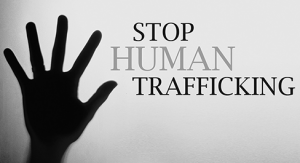One million cedis fund to fight human trafficking is inadequate – IJM Ghana
 The International Justice Mission Ghana has revealed that, the one million Ghana cedis allocated by government as human trafficking fund was inadequate.
The International Justice Mission Ghana has revealed that, the one million Ghana cedis allocated by government as human trafficking fund was inadequate.
Mr Leonard Kobina Ackon, the Head of Advocacy and Partnerships at IJM Ghana, told the Ghana News Agency in an interview said the amount of money provided by the government to fuel the fight against human trafficking was woefully inadequate and must be looked at with critical care.
He said the Anti Human Trafficking Unit (AHTU) of the Ghana Police Service were faced with fundamental challenges which had rendered the Unit incapacitated to properly offer it service due to inadequate funds.
Mr Ackon spoke to the GNA on the side-lines of a training workshop of the International Justice Mission (IJM) Young Journalists Followership Programme (YJFP), where journalists went through vigorous training to learn key concepts of advocating against human trafficking through comprehensive media reportage.
He acknowledged the effort of government through the collaboration between AHTU and IJM Ghana for the past five years, which had gained results through identification of human trafficking cases on the Volta Lake.
He said the collaboration had led to the rescue of victims and the arrest of perpetrators, which had the State Attorney getting a number of culprits prosecuted amongst others.
He added that, “Government is doing a lot but there is room for improvement”.
Mr Ackon stressed that, there were inadequate care homes to provide shelter for victims of human trafficking for both adults and children.
He said the country had only one child friendly shelter owned by the State, which provides housing accommodation for survivals of child trafficking and only one for female adults; “what happens to the male survivals of human trafficking and many other survivals who get rescued?”
Mr Ackon said “Passionate people wants to do something to fight the menace, but they are limited in regards to resources; “You go to some of these places and sometimes a vehicle to move into a community to help identify or help relive a child out of exploitation is not available.
“Sometimes even when there is a vehicle, how to fuel it to move to these danger zones to rescue children or people from exploitation is not available”.
Mr Ackon said the human trafficking fund was the only source that provided care and support to survivors of human trafficking, hence the need for Government to increase the funding.
He added that Ghanaians should be vigilant and inform the Ghana Police Service when confronted by agencies with juicy and lucrative offers outside the country, since it could be a human trafficking syndicate.
Mrs Jacqui Oyimer, Senior Associate, Community Relations, Advocacy and Partnerships at IJM Ghana, said the year-long programme offered media fellows the opportunity to increase their knowledge and build skills in advocating for the elimination of human trafficking in Ghana, while expanding their networks and advancing their career.
She added that the fight against human trafficking was a collective effort and applauded the media outlets for releasing unflinching support in fighting human trafficking in the country, by allowing their staff to embark on the Young Journalists Followership Program (YJFP).
The ten journalists who were trained to champion this fight were: Philip Teye Kojo Agbove, Ghana News Agency-Tema; Senyalah Buayire Castro, Ghanaweb; Reuben Dwomoh, Nyce FM; Ellen Nana Adwoa Tenkoramaa Domena, Max24 Television; Alberta Adatorwovor, Victory FM; and Albert Kuzor, Asaase Radio.
Others were Samuel Richie Ekow Boakye, Starr FM and GhOne Television; Paschaline Deladem Opeku, Volta Power; Judith Awortwi-Tandoh, Joy News/FM; and Elijah Manawuba Badim, Assase FM.
Source: GNA
